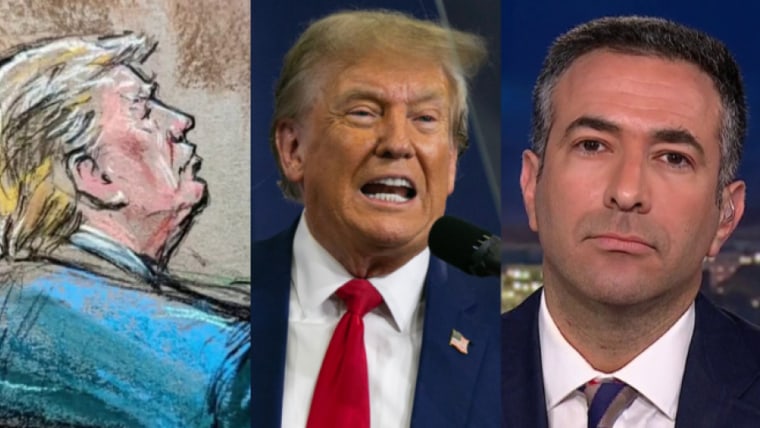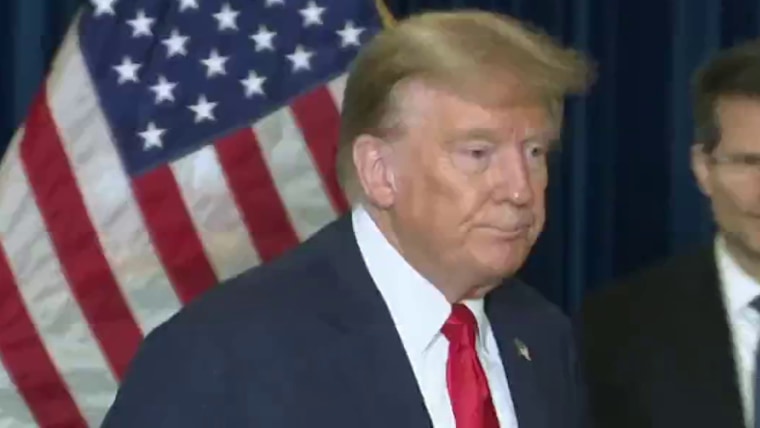Donald Trump has long maintained that he has absolute immunity from being prosecuted for any and all crimes he is alleged to have committed while serving as president of the United States. On Tuesday, that dubious proposition was put to the test when three appellate court judges presided over oral arguments in the case of “The United States of America v. Donald J. Trump.” I attended the court hearing in the United States Court of Appeals for the D.C. Circuit and watched, with significant satisfaction, as three judges clearly signaled, through their questions of counsel, that nothing in our Constitution, our laws or our democratic system of government places an American president above the law.
All three judges — Karen LeCraft Henderson, J. Michelle Childs, and Florence Pan — were extremely skeptical of the arguments made by Trump lawyer John Sauer. There were so many ... unusual claims made by Sauer that it’s hard to know which was the most outlandish. But as I’ve reflected on the totality of his presentation — designed to persuade the court that it’s in our nation’s interest to allow a president to commit crimes with near-absolute immunity — I want to focus on the central contention on which the presidential-immunity argument rises or falls: the meaning of the Impeachment Judgments clause.
Sauer apparently decided he could rewrite that portion of the Constitution, and urged the judges to adopt what he’d like the Constitution to say.
That clause reads as follows:
“Judgment in Cases of Impeachment shall not extend further than to removal from Office, and disqualification to hold and enjoy any Office of honor, Trust or Profit under the United States: but the Party convicted shall nevertheless be liable and subject to Indictment, Trial, Judgment and Punishment, according to Law.”
In layman’s terms, this means that even if the House of Representatives impeaches a president and the Senate convicts at his impeachment trial, the president can still be prosecuted for his crimes.
In an argument unlike any I have ever seen in my 30 years as a federal prosecutor, Sauer apparently decided he could rewrite that portion of the Constitution, and urged the judges to adopt what he’d like the Constitution to say. Specifically, Sauer argued that, regardless of the actual text of the impeachment judgments clause, what it really means is that a president cannot be prosecuted for crimes committed while in office unless he is both impeached by the House and convicted by the Senate.
This rewriting of the Constitution landed poorly with the judges. Indeed, judges are not in the business of creating law, rewriting constitutional provisions or conjuring up rights out of thin air. The judges promptly disassembled Sauer’s creative constitutional construction.
As the oral argument progressed, the judges walked Sauer through the parade of horribles and absurdities that would result if his interpretation of the impeachment judgments clause were adopted. For example: If a criminal president had enough allies in Congress, such that Congress declined to impeach or convict him for crimes committed while in office, the president could not be prosecuted for his crimes. That would, in substance, be giving Congress the ability to grant a criminal president immunity against prosecution. Or, if Congress did go down the impeachment road, a president could simply resign, and he would therefore not be susceptible to criminal prosecution, as he would not have been impeached and convicted. In a very real sense, this would be enabling a criminal president to grant himself immunity by simply resigning his office. These results are as damaging to American democracy as they are absurd.

Indeed, Henderson drove home the absurdity of Sauer’s position, noting that the president has many constitutional responsibilities that are entirely inconsistent with the notion that he is free to violate our nation’s criminal laws. Henderson pointedly told Sauer that the “take care” clause of the Constitution provides that the president must take care to faithfully execute the laws our country, adding that said clause surely includes a requirement not to violate our nation’s laws.
But Pan had the most searing criticism of Sauer’s position. She asked if he was contending that a president could order Seal Team 6 to kill his political rival, and — if the president was not impeached by the House and convicted by the Senate — the president could not be criminally prosecuted for ordering the assassination. After multiple attempts to avoid answering the question, Sauer affirmed that, in his view, a president could not be prosecuted under those circumstances.
And it felt like with that concession, two things became clear. One: Trump, through his attorney, was arguing in favor of a presidency defined by lawlessness and impunity. And, two: The judges will undoubtedly reject the America that Trump hopes for.

